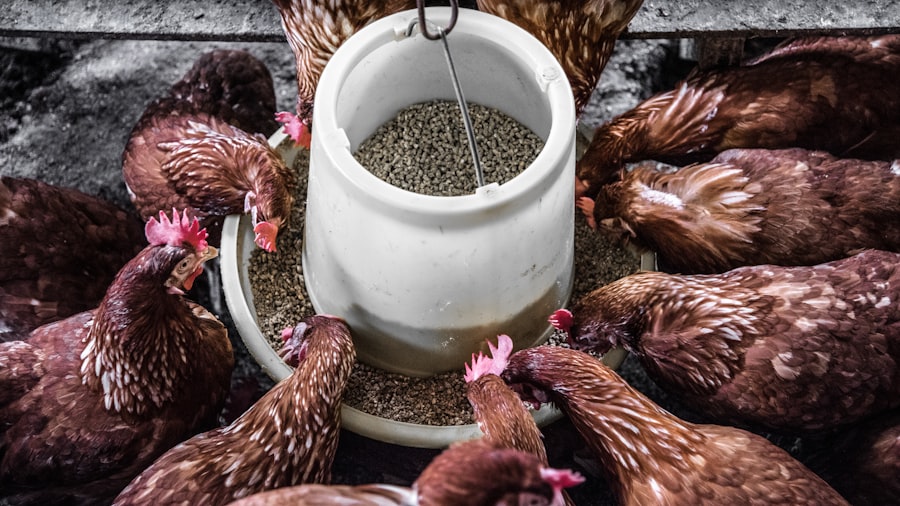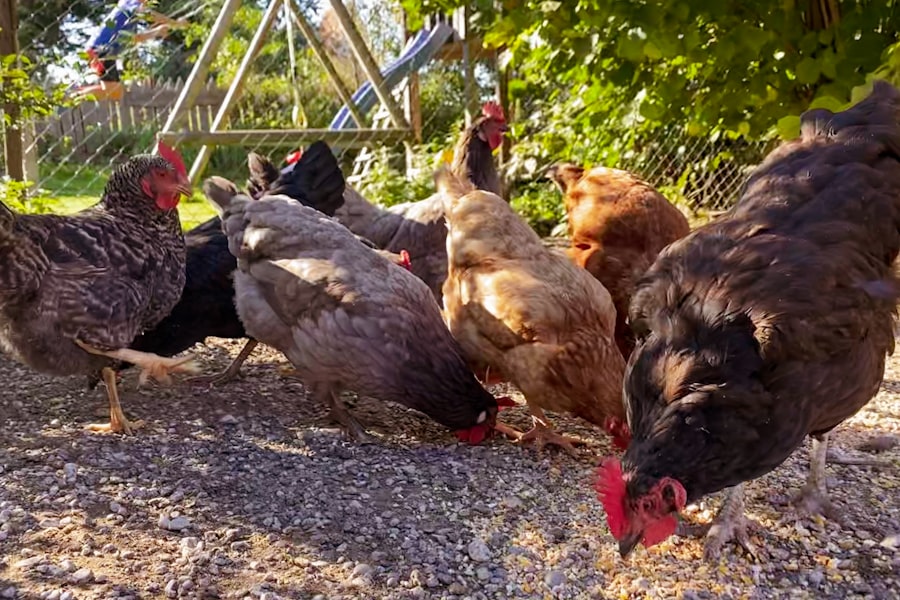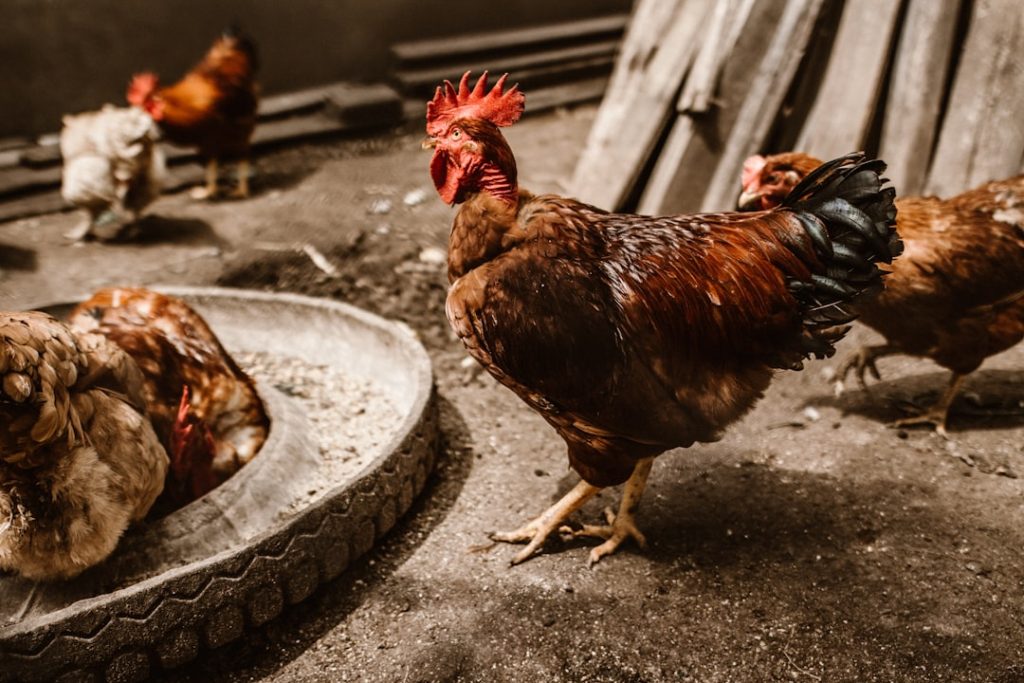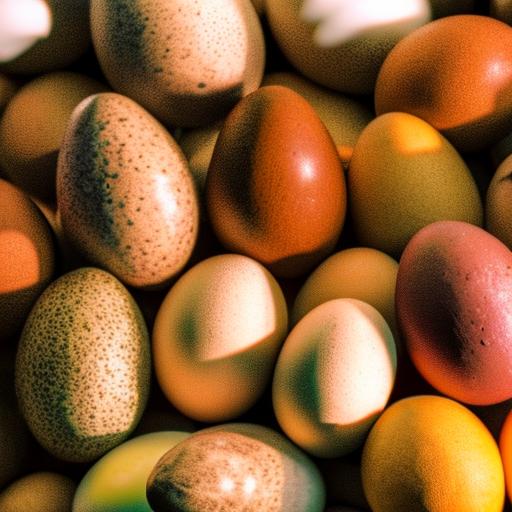Breeder pellets are specialized feed formulated for breeding chickens. These pellets contain essential nutrients, vitamins, and minerals necessary for producing healthy eggs and offspring. The composition typically includes a mix of grains, protein sources, and other nutritional elements to provide a balanced diet.
Breeder pellets are often used in combination with other feeds like layer pellets or scratch grains to ensure a comprehensive nutritional profile for breeding chickens. Different formulations of breeder pellets are available to cater to various breeds and age groups of breeding chickens. Some are specifically designed for broiler breeders, while others are tailored for layer breeders.
There are also pellets formulated for young breeding chickens to support their growth and development. These specialized feeds play a crucial role in maintaining the health and productivity of breeding flocks, making them an indispensable resource for poultry farmers and breeders.
Table of Contents
- 1 The Benefits of Using Breeder Pellets
- 2 How to Choose the Right Breeder Pellets for Your Chickens
- 3 Understanding the Nutritional Content of Breeder Pellets
- 4 Tips for Feeding Breeder Pellets to Your Chickens
- 5 Potential Drawbacks of Using Breeder Pellets
- 6 The Importance of Monitoring Your Chickens’ Health When Using Breeder Pellets
- 7 FAQs
- 7.1 What are breeder pellets for chickens?
- 7.2 What are the key nutrients in breeder pellets?
- 7.3 How do breeder pellets differ from regular chicken feed?
- 7.4 How should breeder pellets be fed to chickens?
- 7.5 Are breeder pellets suitable for all breeds of chickens?
- 7.6 Can breeder pellets be used for other poultry species?
Key Takeaways
- Breeder pellets are specially formulated feed for chickens that are used to support their reproductive health and egg production.
- Using breeder pellets can improve the overall health and reproductive performance of chickens, leading to better egg quality and hatchability.
- When choosing breeder pellets for your chickens, consider factors such as protein content, amino acid balance, and the presence of essential vitamins and minerals.
- Understanding the nutritional content of breeder pellets is important for ensuring that your chickens receive the necessary nutrients for optimal reproductive health.
- When feeding breeder pellets to your chickens, it’s important to monitor their health and make adjustments as needed to prevent potential issues such as obesity or nutrient deficiencies.
The Benefits of Using Breeder Pellets
Nutritional Requirements Met
Breeder pellets are specifically formulated to provide the necessary nutrients that breeding chickens need to produce healthy eggs and offspring. Breeding chickens have higher nutritional requirements than non-breeding chickens, and breeder pellets are designed to meet these increased needs.
Improved Health and Productivity
By providing breeding chickens with a balanced diet that includes breeder pellets, poultry farmers can help ensure that their flocks remain healthy and productive. These pellets support reproductive health, egg production, and chick development by providing essential vitamins and minerals.
Reduced Risk of Health Issues
Feeding breeder pellets to breeding flocks can help reduce the risk of nutritional deficiencies and health issues that can arise during the breeding process. This leads to healthier and more robust chicks, and improves the overall quality of the eggs and offspring produced by breeding chickens.
How to Choose the Right Breeder Pellets for Your Chickens

When choosing breeder pellets for your chickens, it’s essential to consider the specific nutritional needs of your breeding flock. Different breeds and ages of breeding chickens have varying nutritional requirements, so it’s crucial to select breeder pellets that are formulated to meet these specific needs. Look for breeder pellets that are designed for use with the type of breeding chickens you have, whether they are broiler breeders, layer breeders, or young breeding chickens.
It’s also important to consider the quality of the ingredients used in the breeder pellets. Look for pellets that are made from high-quality grains, protein sources, vitamins, and minerals to ensure that your breeding chickens receive a balanced and nutritious diet. Additionally, consider the reputation of the brand or manufacturer when choosing breeder pellets.
Select a trusted and reputable supplier to ensure that you are providing your breeding flock with high-quality feed. Finally, consider any additional supplements or feeds that you may be using in conjunction with breeder pellets. Ensure that the breeder pellets you choose complement any other feeds or supplements you are providing to your breeding chickens to create a complete and well-rounded diet.
Understanding the Nutritional Content of Breeder Pellets
Breeder pellets are formulated to provide a specific balance of nutrients that support the reproductive health and productivity of breeding chickens. These pellets typically contain a higher level of protein than standard chicken feeds to support egg production and chick development. Additionally, breeder pellets are fortified with essential vitamins and minerals, such as calcium, phosphorus, and vitamin D, which are crucial for eggshell formation and chick growth.
The nutritional content of breeder pellets may vary depending on the specific formulation and brand. It’s essential to carefully review the label of any breeder pellets you are considering to understand the exact nutritional content. Look for pellets that provide a balanced mix of protein, vitamins, and minerals to meet the specific needs of your breeding flock.
Additionally, consider any additional nutritional requirements that may be necessary based on the age and breed of your breeding chickens. By understanding the nutritional content of breeder pellets, poultry farmers can ensure that they are providing their breeding flocks with a well-balanced diet that supports reproductive health and productivity.
Tips for Feeding Breeder Pellets to Your Chickens
When feeding breeder pellets to your chickens, it’s essential to follow some key tips to ensure that your breeding flock receives the maximum benefit from this specialized feed. First, it’s important to introduce breeder pellets gradually into your chickens’ diet. Start by mixing small amounts of breeder pellets with their current feed and gradually increase the proportion of pellets over several days.
This will allow your chickens to adjust to the new feed without causing digestive upset. Additionally, monitor your chickens’ consumption of breeder pellets to ensure that they are eating enough to meet their nutritional needs. Breeding chickens may have increased appetites, so it’s important to provide ample access to breeder pellets throughout the day.
Consider using feeders that can hold a large volume of pellets to ensure that your breeding flock has constant access to this specialized feed. Finally, consider consulting with a poultry nutritionist or veterinarian to develop a feeding plan that incorporates breeder pellets into your chickens’ diet effectively. These professionals can provide valuable guidance on how to best use breeder pellets to support the health and productivity of your breeding flock.
Potential Drawbacks of Using Breeder Pellets

Higher Cost Compared to Standard Feeds
One potential drawback of using breeder pellets is their higher cost compared to standard chicken feeds. The specialized formulation and higher quality ingredients in breeder pellets make them more expensive.
Risk of Overfeeding
Another potential drawback is the risk of overfeeding breeder pellets to breeding chickens. Because these pellets are formulated with higher levels of protein and other nutrients, overfeeding can lead to health issues such as obesity or nutrient imbalances. It’s essential for poultry farmers to carefully monitor their breeding flock’s consumption of breeder pellets and adjust their feeding regimen as needed to prevent overfeeding.
Difficulty Sourcing High-Quality Breeder Pellets
Some breeders may find it challenging to source high-quality breeder pellets in their area. Not all feed suppliers may carry specialized breeder feeds, making it necessary for breeders to seek out alternative sources or order feed from a distance.
The Importance of Monitoring Your Chickens’ Health When Using Breeder Pellets
When using breeder pellets for your chickens, it’s crucial to monitor your flock’s health closely to ensure that they are receiving the appropriate nutrition and not experiencing any adverse effects from the specialized feed. Regularly observe your breeding chickens for signs of good health, such as bright eyes, glossy feathers, and active behavior. Additionally, monitor their egg production and chick development to ensure that they are thriving on the breeder pellets.
It’s also important to watch for any signs of nutritional deficiencies or imbalances that may arise from using breeder pellets. Common signs of nutrient deficiencies in chickens include poor eggshell quality, reduced egg production, or slow chick growth. If you notice any of these signs in your breeding flock, consult with a poultry nutritionist or veterinarian to address any potential issues with their diet.
By monitoring your chickens’ health closely when using breeder pellets, you can ensure that they receive the appropriate nutrition to support their reproductive health and productivity. Regular observation and proactive management will help you address any potential issues promptly and keep your breeding flock healthy and thriving.
If you’re looking for ways to improve your chicken coop, you might be interested in learning about the benefits of using breeder pellets for your chickens. These pellets are specially formulated to provide the essential nutrients and vitamins that breeding chickens need to stay healthy and produce high-quality eggs. For more tips on how to create a comfortable and productive environment for your chickens, check out this article on chicken coop interior ideas.
FAQs
What are breeder pellets for chickens?
Breeder pellets are a type of feed specifically formulated for breeding chickens. They are designed to provide the necessary nutrients and energy for optimal egg production and fertility in breeding hens and to support the health and development of chicks.
What are the key nutrients in breeder pellets?
Breeder pellets typically contain a balanced combination of protein, vitamins, minerals, and essential amino acids. These nutrients are essential for supporting the reproductive health of breeding hens and the growth and development of chicks.
How do breeder pellets differ from regular chicken feed?
Breeder pellets are formulated with higher levels of certain nutrients, such as protein and calcium, to support the specific needs of breeding chickens. They also often contain added supplements to support reproductive health and egg production.
How should breeder pellets be fed to chickens?
Breeder pellets should be fed to breeding hens and roosters as their primary source of nutrition. They can be offered free-choice in a feeder, and it’s important to ensure that the birds have constant access to fresh, clean water.
Are breeder pellets suitable for all breeds of chickens?
Breeder pellets are suitable for most breeds of chickens that are being used for breeding purposes. However, it’s always best to consult with a poultry nutritionist or veterinarian to ensure that the specific needs of your breed are being met.
Can breeder pellets be used for other poultry species?
Breeder pellets are specifically formulated for chickens and may not provide the necessary nutrients for other poultry species, such as ducks, turkeys, or quail. It’s important to use a feed specifically designed for the nutritional needs of each species.
Meet Walter, the feathered-friend fanatic of Florida! Nestled in the sunshine state, Walter struts through life with his feathered companions, clucking his way to happiness. With a coop that’s fancier than a five-star hotel, he’s the Don Juan of the chicken world. When he’s not teaching his hens to do the cha-cha, you’ll find him in a heated debate with his prized rooster, Sir Clucks-a-Lot. Walter’s poultry passion is no yolk; he’s the sunny-side-up guy you never knew you needed in your flock of friends!







